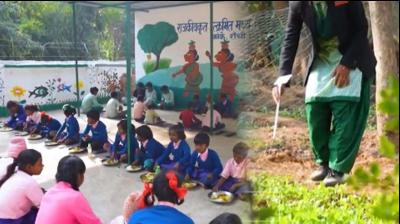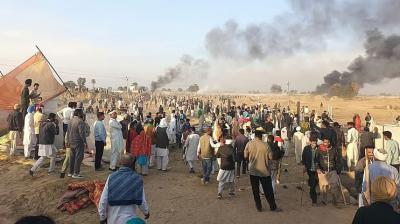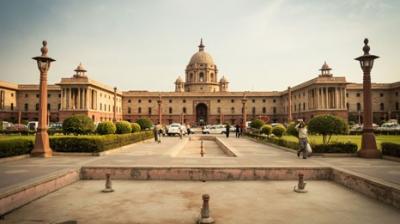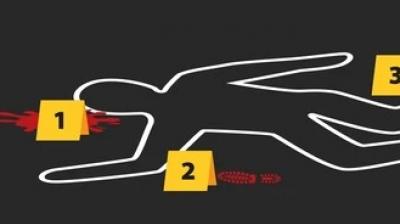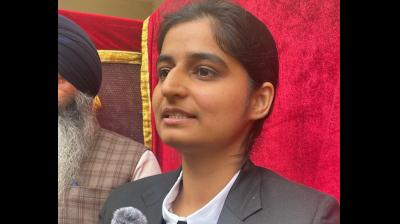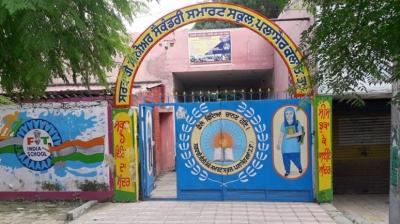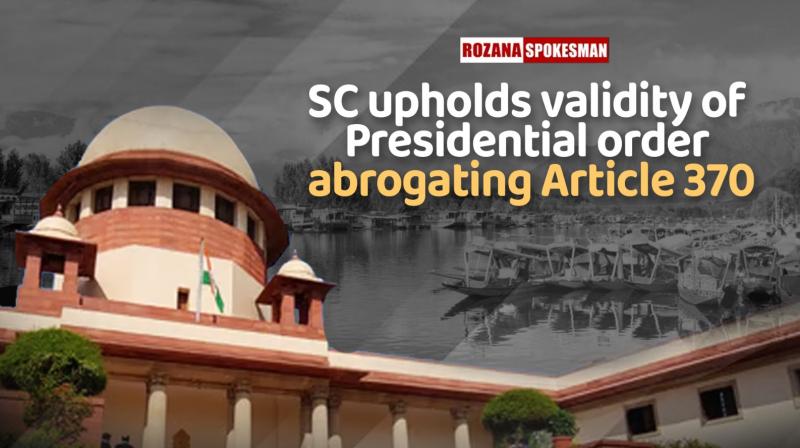
Political leaders across the country have been raising their voices, putting forward their opinions regarding Article 370.
Supreme Court verdict on abrogation of Article 370 Highlights: After four years, four months, and six days of its implementation, the Supreme Court on Monday gave its verdict on the pleas challenging the abrogation of Article 370 in Jammu and Kashmir. The five-judge bench of the Supreme Court headed by Chief Justice of India DY Chandrachud delivered a historic judgement on the validity of the abrogation of Article 370 today.
In the meanwhile, security was beefed up in Jammu and Kashmir ahead of the Supreme Court's judgement on the abrogation of Article 370 to avoid any heightened tensions and potential conflicts due to the hearing in the top court. The political leaders across the country have been raising their voices, putting forward their opinions regarding the matter, while the opposition was still pushing for the comeback of Article 370.
Supreme Court verdict on abrogation of Article 370 | Highlights
09:45 am | The Supreme Court will deliver a historic verdict on the abrogation of Article 370.
10:00 am | On Supreme Court's verdict on abrogation of Article 370 in J&K, Democratic Progressive Azad Party leader, RS Chib said, "It's going to be a historic verdict...".
10:15 am | Mehbooba Mufti put under house arrest ahead of SC verdict on Article 370.
10:54 am | CJI : Issue is (a) whether Article 370 is temporary and (b) whether substitution of 'constituent assembly' by the legislative assembly by using 370(1)(d) is valid or not.
10:56 am | CJI : Whether Presidential order invalid for lack of recommendation of J&K Constituent Assembly.
10:57 am | CJI : Whether the Presidential rule imposed in December 2018 and subsequent extensions is valid.
10:58 am | CJI : Whether the J&K Reorganisation Act bifurcates the State into two UTs constitutionally valid.
10:59 am | CJI : Whether the Presidential proclamation is valid.
11:00 am | The court need not adjudicate on this since the petitioners did not challenge it. And in any case, it was withdrawn in Oct 2019.
11:01 am | The Supreme Court refused to rule on the validity of the Presidential rule imposed in Jammu and Kashmir in December 2018 since it was not specifically challenged by the petitioners
11:02 am | CJI : There are limitations on the power of the Union in states when the proclamation of the presidential rule is in force.
11:03 am | CJI : Exercise of power under Article 356 must have a reasonable nexus with the objective of the proclamation.
11:05 am | CJI : Every decision taken by the Union on behalf of the State during Presidential rule is not open to challenge...this will lead to the administration of the state to a standstill...
11:06 am | CJI : Argument of petitioners that Union cannot take actions of irreversible consequences in the State during Presidential rule is NOT ACCEPTED.
11:08 am | CJI : The argument of the petitioners can the Parliament can only make the law-making powers of the State when the Presidential rule is in force is NOT ACCEPTED.
11:09 am | CJI : Whether Jammu and Kashmir retained an element of sovereignty or internal sovereignty when it joined the Union of India.We have held NO.
11:10 am | CJI : Proclamation of Maharaja stated that the Constitution of India will supersede. With this, the para of Instrument of Accession ceases to exist.
11:10 am | CJI : Constitutional set up did not indicate that Jammu and Kashmir retained sovereignty.
11:11 am | CJI : There is a clear absence in the Constitution of Jammu and Kashmir to the reference of sovereignty.
11:11 am | CJI : That the State of Jammu and Kashmir became an integral part of India is evident from Articles 1 and 370 of the Constitution of India.
11:12 am | CJI : All States in the country have legislative and executive power, albeit to differing degrees. Articles 371 A to 371J are examples of special arrangements for different states. This is an example of asymmetric federalism.
11:12 am | CJI : The State of Jammu and Kashmir does not have internal sovereignty different from other states.
11:13 am | CJI : Next we have addressed a challenge to Constitutional Order 273. To decide, we have considered whether Article 370.
11:14 am | CJI : We have held that Article 370 is a temporary provision.
11:15 am | CJI : Article 370 was an interim arrangement due to war conditions in the State. Textual reading also indicates that it is a temporary provision. The marginal note says it is temporary and transitory.
11:16 am | CJI : The power of the President under Article 370(3) to issue a notification that Article 370 ceases to exist subsists even after the dissolution of the J&K Constituent Assembly.
11:17 am | CJI : The recommendation of the Constituent Assembly was not binding on the President. J&K Constituent Assembly was intended to be a temporary body.
11:17 am | CJI : When the constituent assembly ceased to exist, the special condition for which 370 was introduced ceased to exist but the situation in the state remained and thus the article continued.
11:18 am | CJI : Holding that the power under Article 370(3) ceases to exist after the dissolution of the J&K Constituent Assembly will lead to the freezing of the process of integration.
11:19 am | CJI : The Court cannot sit in appeal over the decision of the President of India on whether the special circumstances under Article 370 exist.
11:20 am | CJI : History shows the gradual process of constitutional integration was not going on. It was not as if after 70 years Constitution of India was applied in one go. It was a culmination of the integration process.
11:21 am | CJI : We have held that all provisions of the Constitution of India can be applied to J&K using Article 370(1)(d) in one go.
11:21 am | CJI : We do not find the use of Presidential power to issue CO 273 was MALA FIDE. Thus we hold the exercise of Presidential Power to be VALID.
11:24 am | CJI : Principle of consultation and collaboration was not required to be followed for the exercise of Presidential power.
11:25 am | CJI : Concurrence of the State govt was not required to apply all provisions of the Constitution using Article 370(1)(d). So the President taking the concurrence of the Union Govt was not malafide.
11:26 am | CJI : We have held that CO 272 to the extent of modifying Article 367 is ultra vires Article 370.
11:27 am | CJI : While the change sought to be made by CO 272 appears to be to Article 367 at the first plush, it effectively changes Article 370. It changes the body for recommendation. Thus the changes are substantive.
11:28 am | CJI : The interpretation clause cannot be modified to amend Article bypassing the amendment process.
11:28 am | CJI : We have therefore held that the amendments made to Article 370 by taking recourse to Article 367 as ultra vires.
11:30 am | CJI : Interpretative clause cannot be used to bypass the specific route for a constitutional amendment. Permitting such amendments by such a surreptitious method would be disastrous.
11:30 am | CJI : Validity of J&K Reorganisation Act 2019- SG submitted that the statehood of J&K will be restored and the status of UT was temporary. Given the submission made by the SG, we don't find it necessary to determine whether the reorganization of J&K into UT is valid.
11:31 am | CJI : The reorganisation of Ladakh as Union Territory is upheld as Article 3 allows a portion of State to be made as UT.
11:32 am | CJI : The question of whether Parliament can convert a State into a Union Territory is left open.
11:32 am | CJI : Following conclusions :
(a) the State of J&K does not retain any element of sovereignty. It does not have internal sovereignty. Article 370 is a feature of asymmetric federalism and not sovereignty.
(b)Petitioners did not challenge the Presidential Proclamation.
(c) Exercise of the President's power after the proclamation is subject to judicial review.
(d) The power of Parliament under Article 356(1) to exercise powers on behalf of the State Assembly is not restricted to law-making powers.
(e) Article 370 is a temporary power.
(f) Power under Article 370(3) did not cease after the J&K Constituent assembly ceased to exist.
(g) Article 370 cannot be amended by exercise of power under Article 370(1)(d). Paragraph 2 of CO 272 amending Article 367 is ultra vires because it modifies Article 370 in effect.
(h) Exercise of power by the President under 370(1)(d) is not mala fide. The president did not have to obtain the concurrence of the State and could act on the Union's concurrence.
(i) Para 2 to CO 272 applying all provisions of the Constitution to J&K is valid.
(j) The President had the power to issue a notification declaring that Article 370 ceases to operate without a recommendation of the J&K Constituent Assembly. It is a culmination of the integration process.
11:38 am | CJI : The views of the State legislature under Article 3 provision are recommendatory. SG stated that the statehood of J&K will be restored except for the carving out of the UT of Ladakh. So this issue is left upon.
11:39 am | CJI : We direct that steps shall be taken by the Election Commission of India to conduct elections to the J&K assembly by September 30. Restoration of statehood shall take place as soon as possible.
11:42 am | Justice Sanjay Kishan Kaul reads out his judgment(concurring). J Kaul : I have started with historical background...my conclusions are more or less the same, except in one issue, regarding Prem Nath Kaul's case, I have taken a different route.
11:43 am | J Kaul : The purpose of Article 370 was to slowly bring Jammu and Kashmir on par with the other States of India. The requirement of recommendation of the J&K Constituent Assembly cannot be read in a manner that makes the larger intention redundant
11:44 am | J Kaul : When the Constituent Assembly ceased to exist, it meant only the proviso to Article 370(3) was rendered otiose. But the main provision existed.
11:45 am | J Kaul : Regarding the amendment of Article 370 using 367, I have said when a procedure is prescribed, it has to be followed. Amendment through the backdoor not permissible.
11:50 am | J Kaul : In my epilogue, I have said -To move forward, wounds require healing...inter-generational trauma is felt by people.
11:51 am | J Kaul : The first step towards healing the wounds is the acknowledgment of the acts of violations done by the State and its actors.... truth-telling paves the way for reconciliation...
11:52 am | Justice Kaul : I recommend the setting up of an impartial Truth and Reconciliation committee to investigate and report on the violations of human rights both by the State and non-state actors at least since the 1980s and recommend measures for reconciliation.
11:53 am | Justice Kaul : The Commission must be set up before memory escapes. The exercise must be time-bound. There is an entire generation of youth that has grown up with a feeling of distrust and it is to them that we owe the greatest day of liberation.
11:54 am | Justice Kaul : It is for the government to decide how the Truth and Reconciliation Commission must be set up, considering the sensitivities of the issues involved.
11:55 am | Justice Kaul: The Commission must not turn into a criminal court and must be offering a platform for dialogue... Refers to the Truth and Reconciliation Commission set up in South Africa.
11:57 am | Justice Kaul: Truth and Reconciliation Commission could facilitate a reparative approach, that enables forgiveness for the wounds of the past and forms the basis of achieving a shared national identity.
11:58 am | Justice Khanna: CO 272 Amending Article 367 was bad in law, however, the same objective was achieved by 370(3) and thus CO 273 is valid.
11:58 am | Judgment pronouncement ends.
What is Article 370 of the Constitution of India?
Article 370 of the Indian constitution provided Jammu and Kashmir with a special status. The 'temporary' provision of Article 370 allows Jammu and Kashmir to have its constitution, a separate flag, and limited interference by the Indian government.
One of the other key aspects of Article 370 was that no citizen from other states would be able to buy land or property in Jammu and Kashmir. Also, this barred the central government from declaring an emergency in the state given the internal unrest without the concurrence of the government in Jammu and Kashmir.


